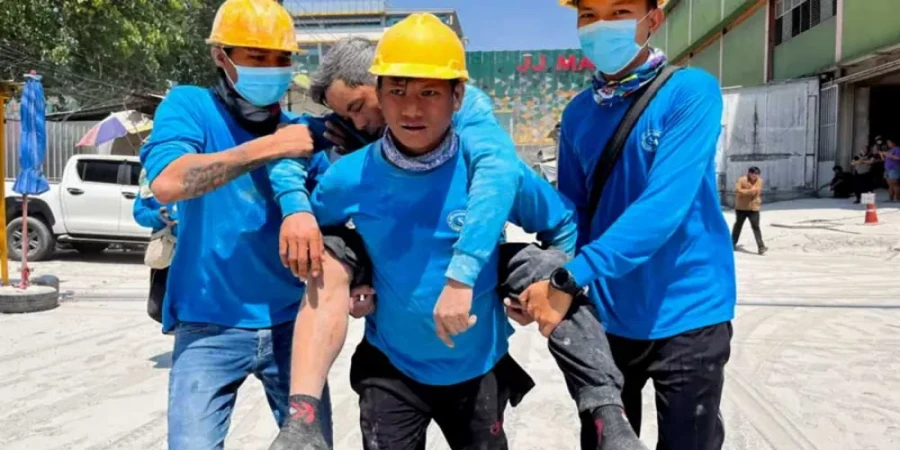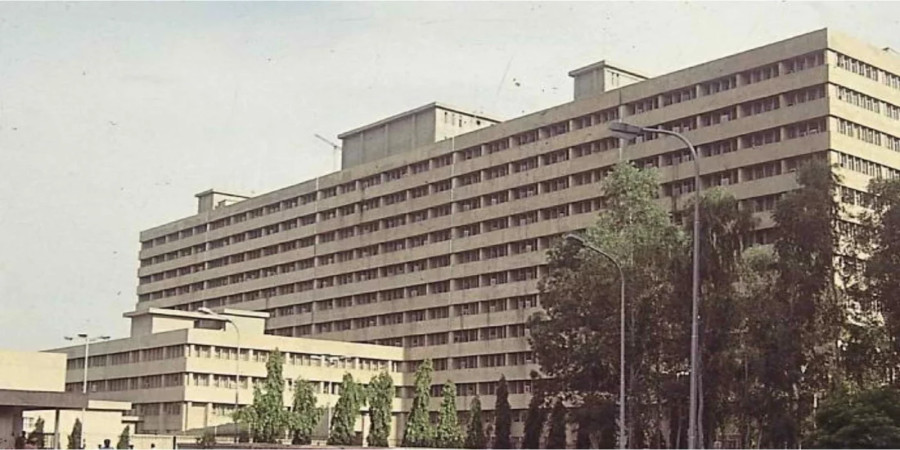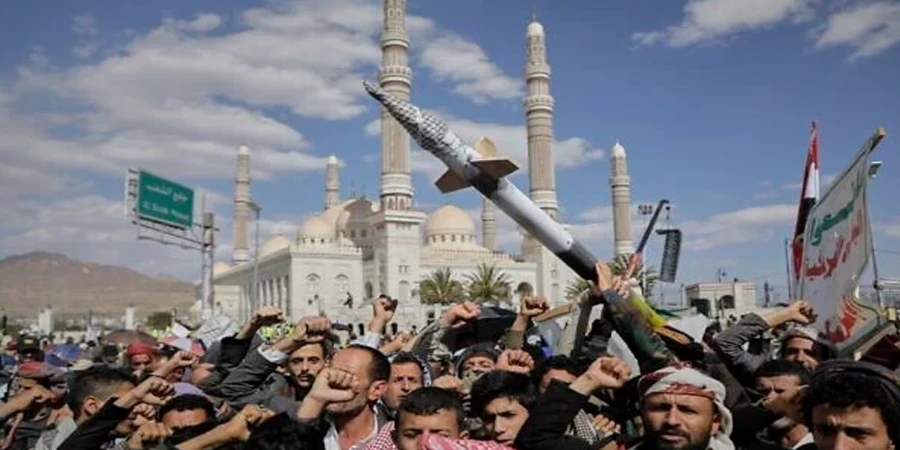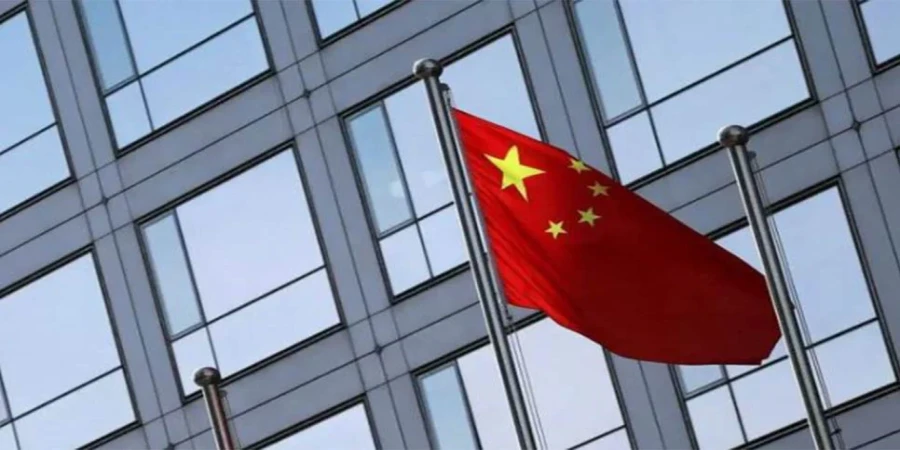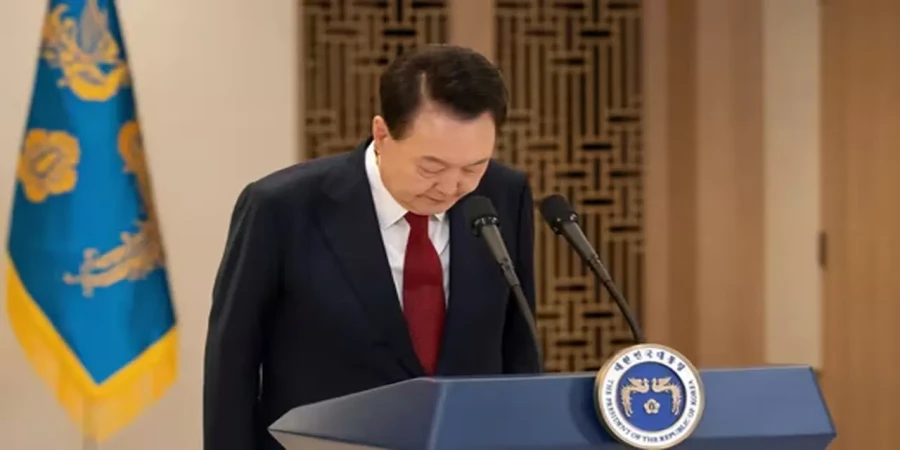
ছবি: South Korean President Yoon Suk-yeol. Image: Collected
South Korean President Yoon Suk-yeol has been impeached following a turbulent political period marked by the brief imposition of martial law. The impeachment process, driven by mounting opposition and public unrest, culminated in a decisive vote in parliament.
On Saturday, December 14, Al Jazeera reported that the South Korean parliament voted overwhelmingly in favor of Yoon's impeachment. This marks the second impeachment attempt in just eight days, underscoring the intensity of the political crisis. In the latest session, a majority of lawmakers voted to remove the president from office. Out of the required two-thirds majority for impeachment, the vote garnered widespread support, with all 300 parliamentary members participating in a secret ballot. During the proceedings, thousands of protesters gathered outside the parliament building, reflecting the widespread dissatisfaction with the president's leadership.
According to the BBC, 204 lawmakers voted in favor of impeachment, including some members from Yoon's own party, the People Power Party (PPP). This bipartisan support for impeachment further highlighted the president's dwindling political influence and the extent of the public's disapproval.
Under South Korea’s constitution, Prime Minister Han Duck-soo will assume the role of acting president while the impeachment process unfolds. Although Yoon will remain in office until a final ruling is delivered, he will be stripped of all executive powers during this time. The impeachment now moves to the Constitutional Court, where a legal review will determine whether Yoon will be permanently removed from office or reinstated.
In a statement following the vote, Prime Minister Han Duck-soo assured the public that his administration would focus on maintaining stability during this transitional period. He pledged to use all available resources to restore order and ensure that the government continues to function effectively. "I will dedicate my full strength and efforts to stabilizing the government and guiding the nation through this difficult time," Han stated.
President Yoon, in a formal address after the impeachment vote, expressed his commitment to serving the nation despite the challenges. He acknowledged the political unrest but emphasized his desire to persevere for the country's future. "Although I am stepping back for now, the journey I began with the people over the past two and a half years must not come to an end. I will carry the support and encouragement I have received and continue to do my utmost for the nation," Yoon said.
The political turmoil in South Korea intensified earlier this month when President Yoon declared martial law on December 3. The move, which was met with fierce opposition from lawmakers and citizens, escalated tensions across the country. The declaration was short-lived, however, as Yoon was forced to revoke the martial law following a parliamentary vote and widespread protests. The controversial decision also led to a court order barring Yoon from leaving the country, further complicating his presidency.
The impeachment process reflects deep divisions within South Korean politics and growing public frustration over Yoon's leadership. Critics have accused Yoon of overstepping his constitutional powers and failing to address the concerns of ordinary citizens. The imposition of martial law, in particular, triggered fears of authoritarianism and undermined public trust in the government.
As acting president, Prime Minister Han Duck-soo faces the formidable task of navigating the political crisis while ensuring the government’s stability. Observers note that Han's leadership will be critical in rebuilding public confidence and preventing further unrest. Meanwhile, the Constitutional Court's deliberations on Yoon's impeachment are expected to attract significant attention both domestically and internationally.
The coming weeks are likely to be a pivotal period for South Korea, as the nation grapples with the implications of Yoon's impeachment and its broader political consequences. With protests continuing and political divisions deepening, the country's leadership faces considerable pressure to chart a path forward that restores stability and addresses the grievances of its citizens.
For now, the impeachment of President Yoon Suk-yeol serves as a stark reminder of the challenges facing South Korea's democratic institutions and the importance of maintaining public trust in governance.
repoter



